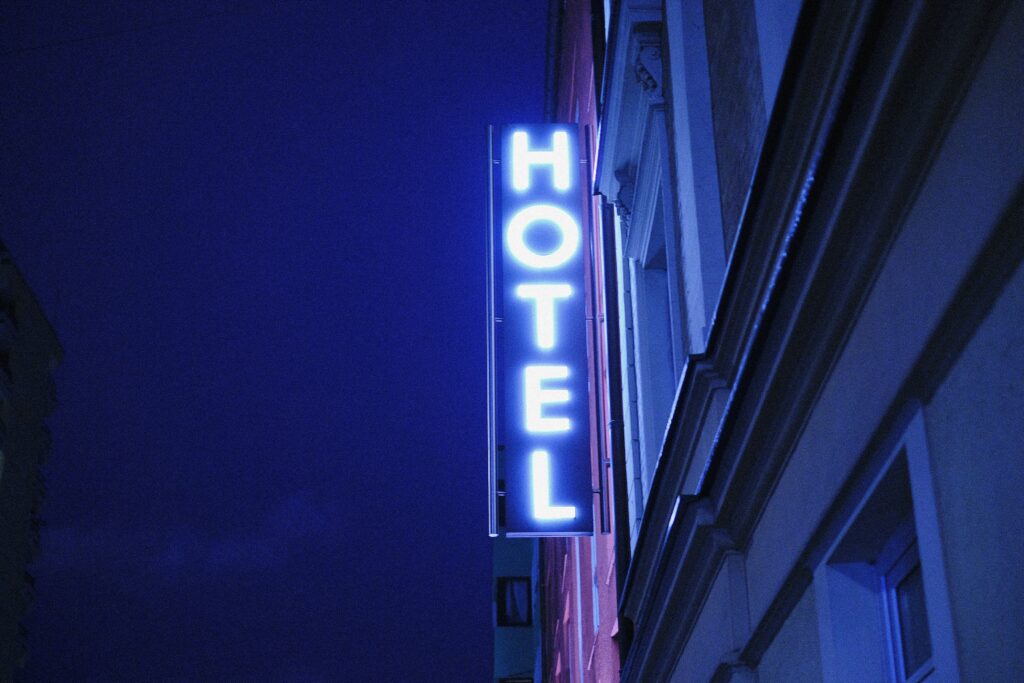The Airbnb vs. hotel debate has been heating up for over a decade, but in 2025, the decision is more complicated than ever.
With Airbnb introducing new fees and regulations, and hotels leveling up their design and digital experiences, travelers are left wondering: Which one is actually better in 2025?
Let’s break down the pros, cons, and real-world comparisons to help you decide where to book your next stay.
🏠 Airbnb in 2025: Still Worth It?
✅ Pros
- More space – Great for groups, families, or longer stays.
- Kitchens = savings – Cook your own meals to stretch your budget.
- Unique stays – From treehouses to restored lighthouses, Airbnb still wins for novelty.
- Local feel – You’re often in residential areas, not tourist zones.
❌ Cons
- Cleaning fees & chores – Many listings charge high fees and expect you to do the laundry.
- Inconsistent quality – Not all listings match their photos or promises.
- Limited service – No concierge, daily housekeeping, or front desk help.
- Local crackdowns – Many cities now restrict short-term rentals, reducing inventory and increasing prices.
🆕 New in 2025
- AI-based verification tools to detect scams
- Transparent pricing laws in many countries (goodbye surprise fees!)
- “Guest Scores” for hosts to rate you back, Uber-style

🏨 Hotels in 2025: Making a Comeback?
✅ Pros
- Reliable service – Daily cleaning, staff on-call 24/7, amenities included.
- Loyalty perks – Free upgrades, points, late check-outs.
- Prime locations – Often located in city centers or near major attractions.
- Safety & support – Secure entry, front desk, and emergency response.
❌ Cons
- Smaller rooms – Especially in cities, space is at a premium.
- No kitchen – Eating out 3x a day adds up fast.
- Can feel generic – Especially in chain hotels.
🆕 What’s Different in 2025
- Flexible check-in/out powered by apps
- On-demand housekeeping to reduce environmental impact
- In-room workstations & wellness tech for remote workers and health-conscious travelers
- Smarter hotel pricing using dynamic AI models (prices often adjust multiple times per day)

🧳 Best For…
| Type of Traveler | Go with Airbnb if… | Go with Hotels if… |
|---|---|---|
| Budget Traveler | You’re staying more than 3–4 nights & can cook | You’re using points or booking mid-week deals |
| Business Traveler | You want quiet + space to work | You need guaranteed Wi-Fi & concierge service |
| First-Time Traveler | You’re traveling with friends or family | You want peace of mind & 24/7 help |
| Luxury Seeker | You want a designer home with a view | You want spa, room service, and turn-down |
| Digital Nomad | You need a kitchen, workspace, and laundry | You want hotel lounge access & fast internet |
🧠 Key Considerations Before Booking
📍 Location Matters
Airbnb may offer better value in suburban or rural areas. In city centers, hotels are often more competitively priced and better located.
🧼 Cleanliness Expectations
Hotels are regulated by health departments. Airbnb relies on host standards, though reviews help. In 2025, both are stepping up their hygiene tech (UV tools, AI cleaning checklists, etc.).
💳 Fees, Taxes & Fine Print
- Airbnb: Watch for cleaning + service + occupancy taxes.
- Hotels: Watch for resort fees, parking, or Wi-Fi surcharges.
Use platforms that show total pricing upfront — many do now due to transparency laws.
🔄 The Hybrid Option: Hotel-Apartment Hybrids
In 2025, new hybrid accommodations are emerging:
- Sonder, Mint House, The Guild offer Airbnb-style apartments with hotel-like consistency.
- Great for travelers who want both flexibility and service.
🧭 Final Verdict: It Depends on What You’re Looking For
There’s no one-size-fits-all answer. But here’s a quick rule of thumb:
Book an Airbnb if you value space, kitchens, and local flavor.
Book a hotel if you value service, simplicity, and consistency.
In many cases, the best trip might include both.


Leave a Reply